The collected stack of our experiences shape us to be the people we are today. The most powerful of those being what we experienced as children. For some, these can be tough to deal with; for others, they can be informative springboards bringing us unique and valuable world views. At 10, Sandy, the child of a US Army colonel, was a kid running and playing in the early-’60s streets of Saigon. She saw a lot: coups, bombings, people dying; but also came to understand the culture of Vietnam as her elders couldn’t. She came away determined to make the most of life, and part of that was telling the story of what it was like to grow up in a conflict, innocent and playful, yet being a close observer of the dangers nearby.
Vietnam is a country that stirs emotions in a way that few others do. When we hear “it’s another Vietnam,” we know exactly what is meant. However, this one-dimensional view based on a tragically misinformed war takes very little else into account, especially the ancient and complex Vietnamese culture. Layer on top the unique experience of children of military families stationed there, and we have the makings of a wonderful story. This is The Ignorance of Bliss: An American Kid in Saigon, the story of 10-year-old Sandy. A testament to the impact the book has had can be read in the reviews on Amazon from people who know, people who were part of that conflict. Have a look here; they are powerful.
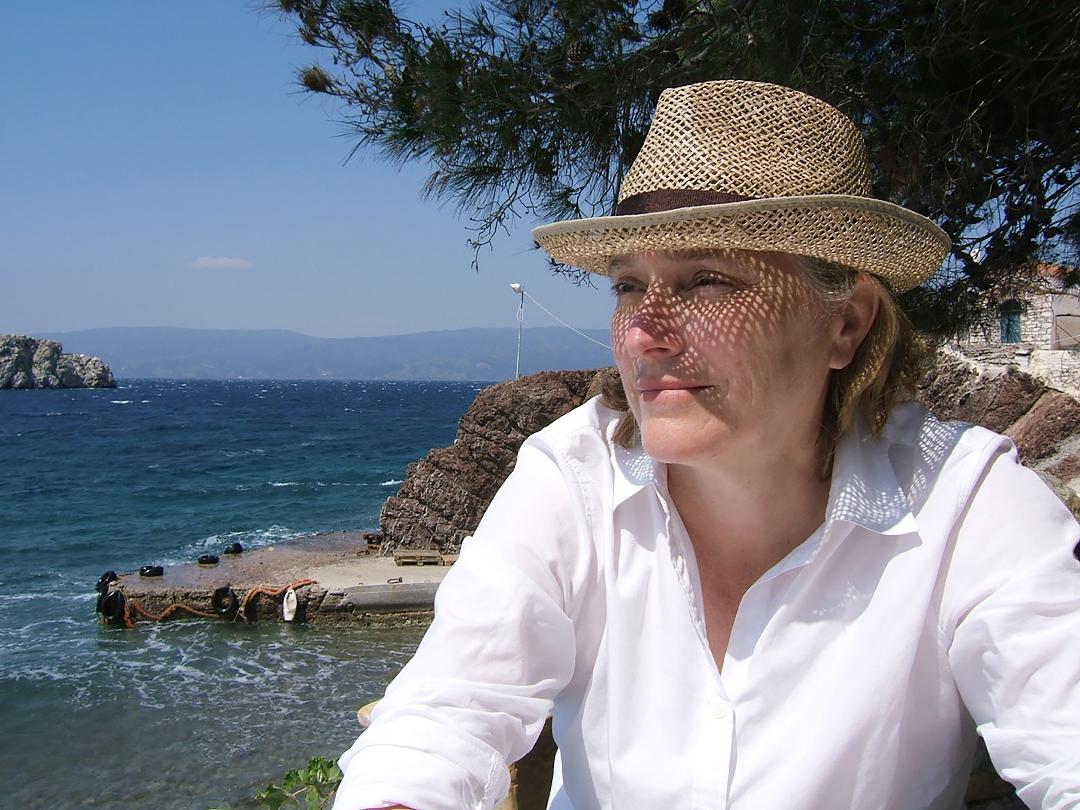
How old are you?
72 years young, born in 1950.
You have a reputation for being extraordinarily energetic. Any advice to others who would like the same energy?
I view life differently than most people, perhaps closer to those individuals who thought they would have a life and thought they would die before they had a chance to grow up. Growing up in Vietnam in the early ’60s and living through coups and bombings, I returned to the United States only to believe that a nuclear war would take away any chance of growing up during the Cuban Missile Crisis. Nothing is guaranteed. I felt it was my responsibility to live life fully for those who were killed around me in a coup in Saigon in 1960 and didn’t have that option. I welcome life with gusto, and I will take on anything anyone asks me to do. No matter what it is, how one lives a life is a choice. Life offers so much, and I am never at a loss for something to do. I find people fascinating and am amazed at the brilliance and absurdities that surround me every day. Energy comes from being receptive to the world around you. If you are interested in life, you will also become interesting. What will help you become energized? Embrace life!
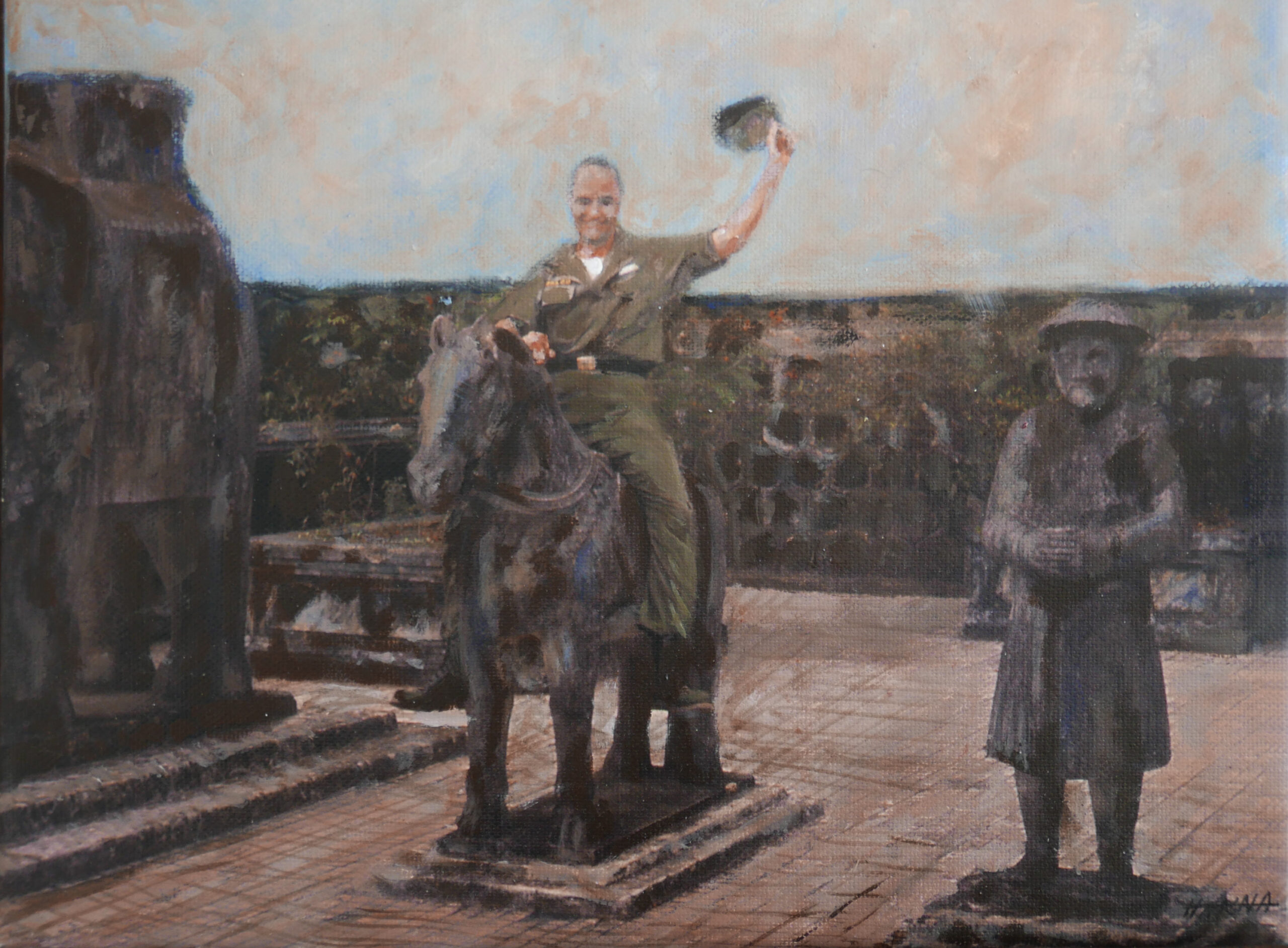
“I felt it was my responsibility to live life fully for those who were killed around me in a coup in Saigon”
What was your process in writing the book?
When my father, the Colonel, was in his eighties, he slid an aging folder across the kitchen table to me on one of my visits. He said: “It is time.” When I asked what it was time for, he said the documents in the folder were from an exposé written by his Vietnamese counterpart Le Van Sam, who was at risk of his life in 1960 when Sam gave that exposé to him. I used to spy on him in Saigon when he had visitors late at night. I remembered the night Colonel Sam arrived and gave the packet to him. So many years later, the Colonel was passing it on to me. He asked me to use what I would find written in this document to write a compelling story about Vietnam. He said: “People don’t like to talk about Vietnam and don’t understand what led up to the unfortunate consequences of the US involvement in that country. In not understanding what happened in Vietnam, we are destined to repeat it and are doing so in the Middle East.”
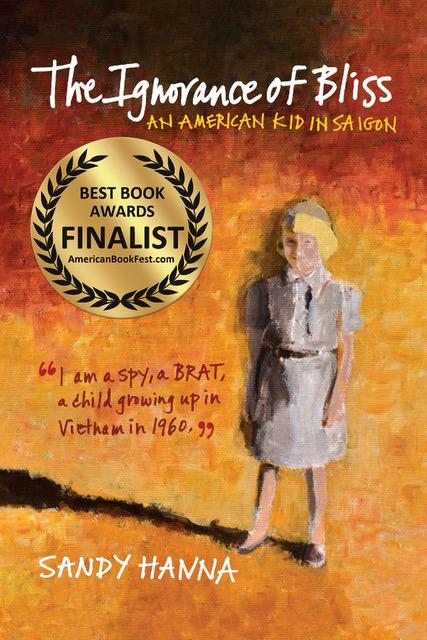
What is it that you want the reader to come away with?
I wasn’t interested in focusing on the battles but on the reason for the conflict. I hoped that it would provide a place from which a conversation might begin for those whose loved ones went to Vietnam and cannot talk about their war experiences. It was also written for those who do not understand Vietnam and still wonder about it many years later.
I also wanted to show the kind of lives we children live that follow their military families around the world. We often find ourselves in ‘the eye of the hurricane.’ We are the unrecognized arm of the military, and our stories are not to be believed but are true.
I encourage Vietnam Vets to return to Vietnam. They are welcomed warmly. The Vietnamese worldview sees everything as something meant to be. Vietnam Vets don’t like to talk about Vietnam, which often leaves families in the dark and leaves a void in their family. From the reviews of those who have read my memoir, I think I have achieved what I set out to do: to bring an understanding and to start conversations.
The Vietnam Indochina Wars phase started as an attempt to no longer be under French colonial rule. The Vietnamese have been fighting for independence from the Chinese, the Russians, the French, and many more. The United States thought it could take control of Vietnam and entered the conflict by unwittingly supporting a corrupt regime that was not of or for the people of Vietnam. The story of Vietnam is complicated, but I hope my memoir will shed some light on it for the many who were there and those who were not.
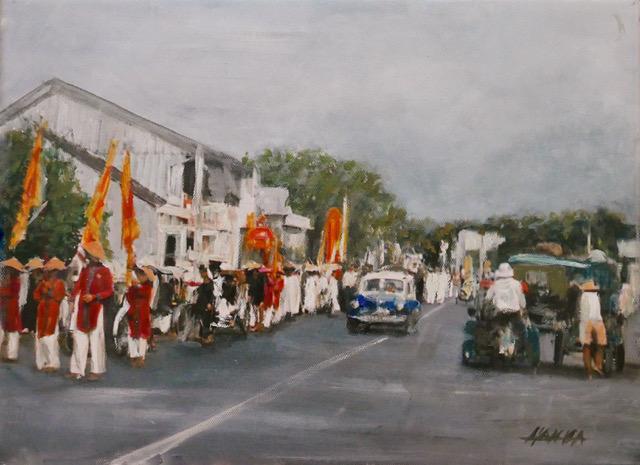
“The story of Vietnam is complicated, but I hope my memoir will shed some light on it for the many who were there and those who were not”
That time was a difficult one for so many people, and reading the reviews of your book you have brought a lot of peace to many. What is it about being a child of a serving military officer that others may not understand?
Military kids, BRATs (British Regiment Attached Transfers), have lives few understand or ever experienced. We are nomadic, moving every two to three years, finding ourselves in foreign countries, dropped into cultures and languages that we assimilate and learn. Military kids don’t have a sense of home as a real place. We are bound to our families, moving without much notice of the transfer. When making friends, we focus on what we like about a person, not what we don’t like. They or you might leave tomorrow without notice. We don’t have memories of growing up with friends other than a few short years, and in most cases will never come across these friends again. We leave our homes, teachers, pets, and friends, walking away without looking back. We are transient and adaptable. We find civilian life unfamiliar. Yet, we are also quick to assimilate into wherever we land and make friends quickly. We read people immediately and find our place in their world.
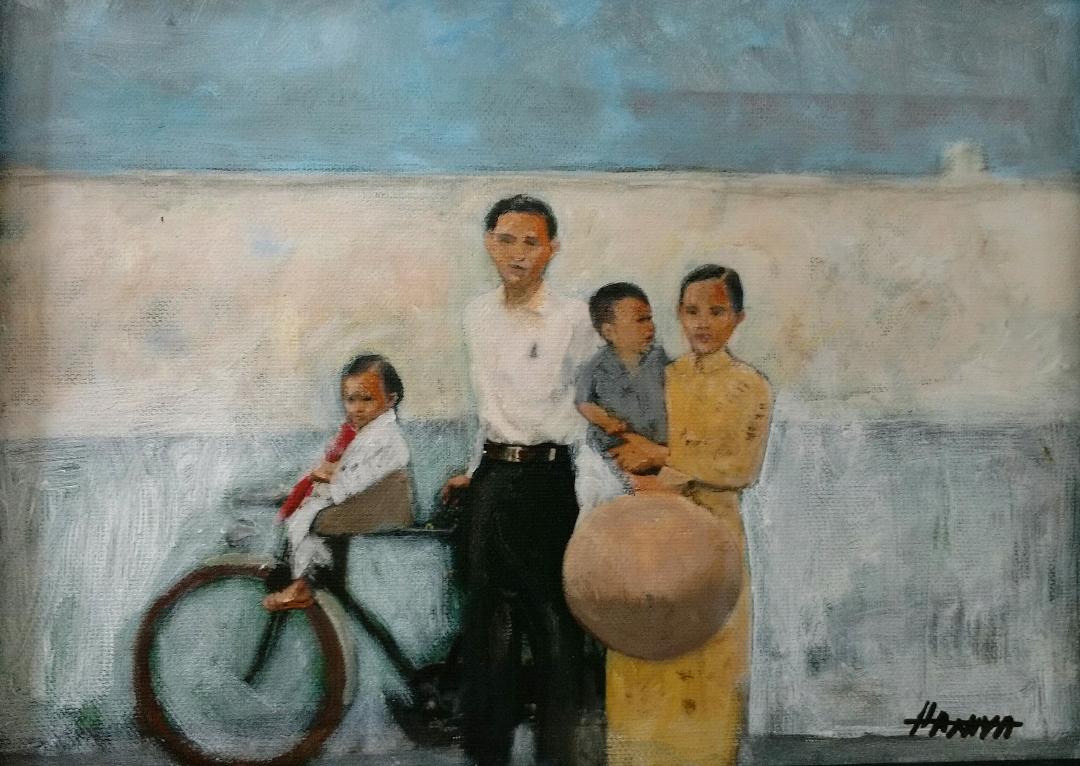
How has your experience as a child in Vietnam impacted your life?
During the early days of living in Saigon, my siblings and I stumbled upon a coup orchestrated by the Vietnamese military against the American-supported ruler, Diem. I didn’t die in that coup when bullets killed many near me. At age ten, I decided then and there that I had to make a full life for myself because I hadn’t lost my life. I owed it to everyone who died that I do so. When the second coup happened, and I had to watch from the rooftop of our house as bombs dropped on the Presidential Palace, not knowing where my parents were, I moved into a take-charge role with my siblings. Vietnam formed who I am today in so many ways.
I remain grateful for every day and try to use it to the fullest. The Buddhist beliefs I was exposed to became a formative foundation for this young person. I came to believe in the universe’s natural order and accept that whatever comes before me is something meant to be. There is a reason for everything.
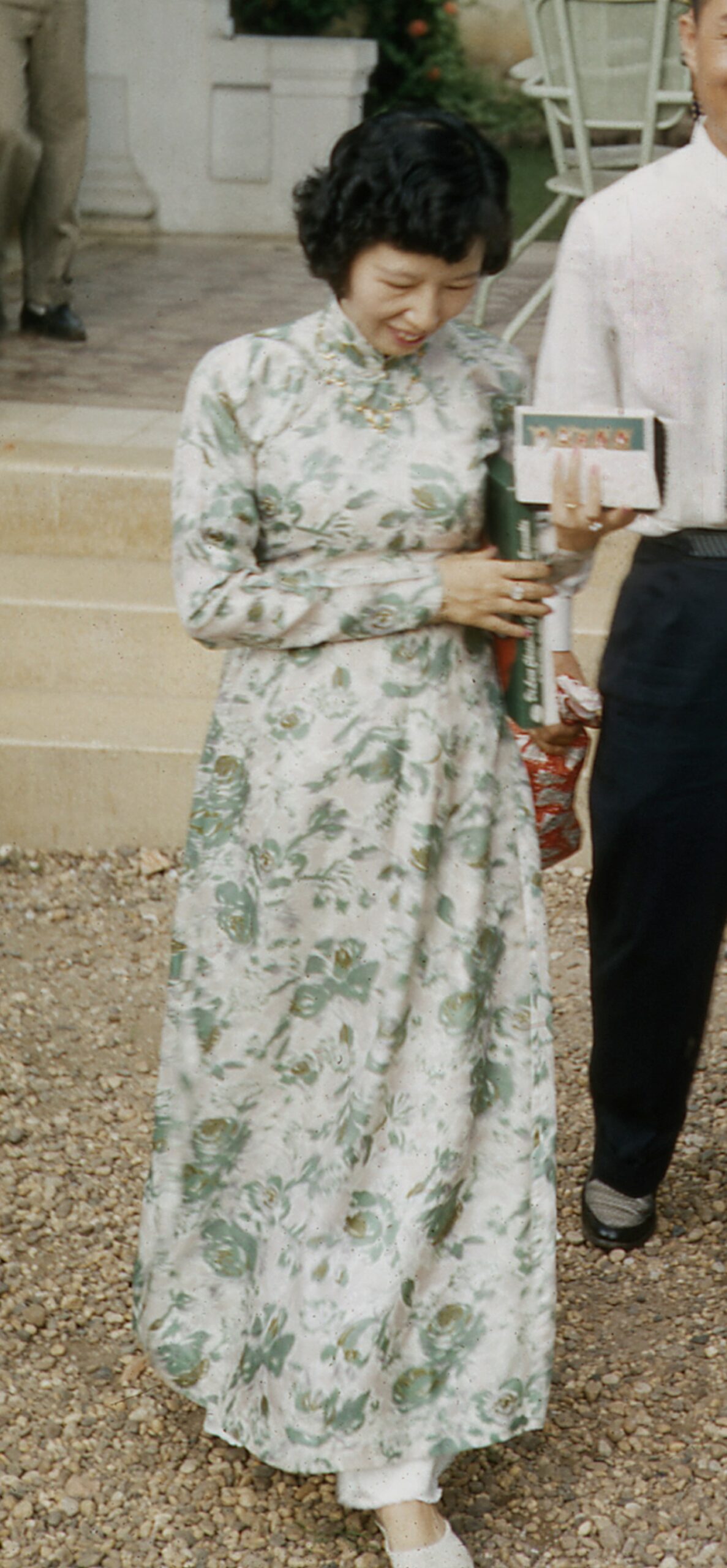
What would you like people to know about Vietnam and its people?
Vietnamese view the world entirely differently from Americans. It is part of the reason the United States could never succeed there. It is a view based on the family structure with a sense of history, continuity, and consequence. They had survived for thousands of years because of this. Our idea of democracy would never be of any use to them. For them, there is no blame attached to the individual. It is not you or me that created what happened during the war. It is the ‘will of heaven’ and is accepted as such. In visiting current-day Vietnam, you are welcomed with open arms. This behavior can be confusing for Americans who lived through the war and either maintain a sense of guilt or anger.
The Vietnamese are a proud and cultured people. Their history is amazing, and the people I met had a major influence on my life and my view of the world.
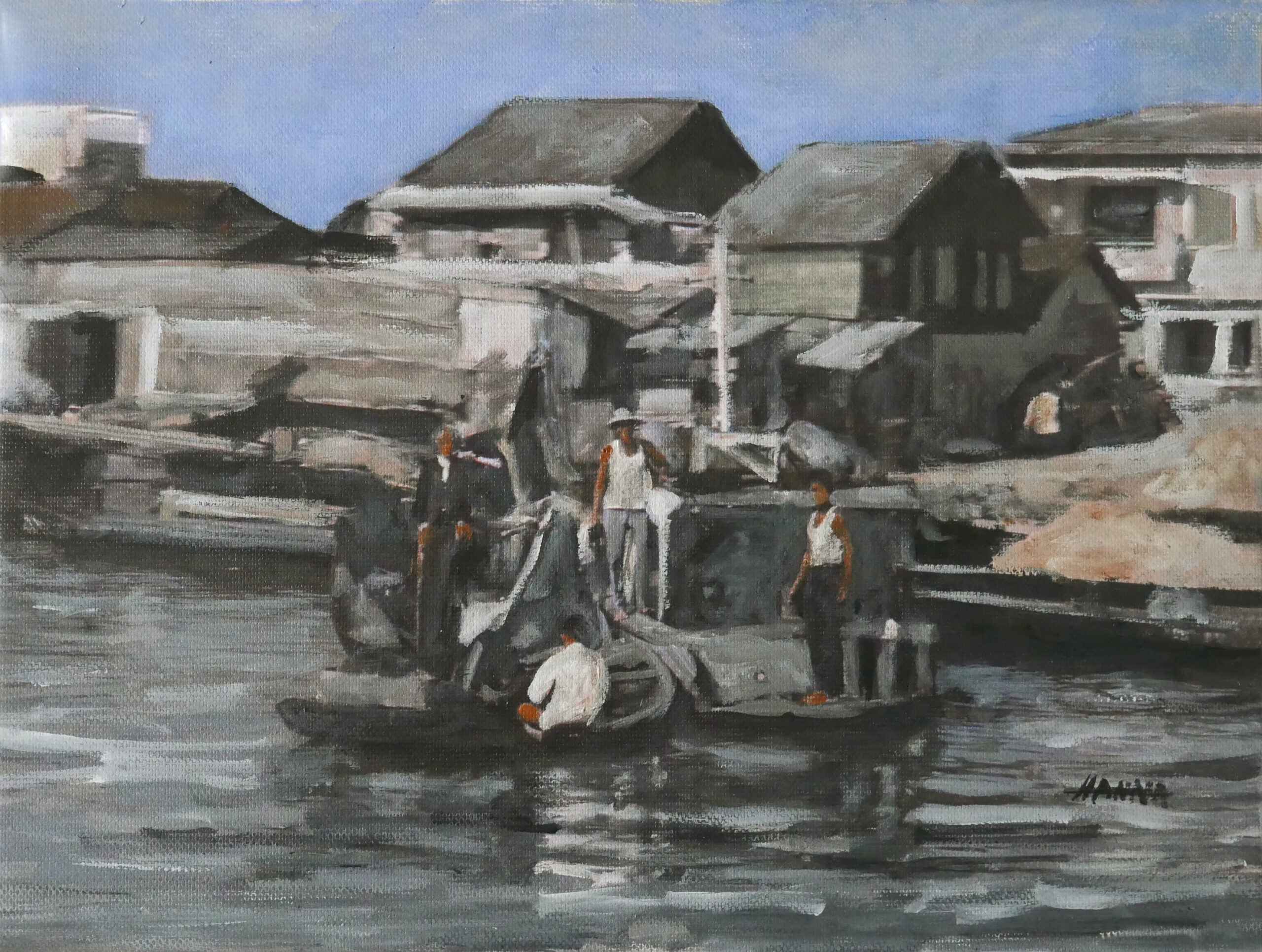
Designing the Sesame Place Theme Park
Tell us about your experience as a designer of the Sesame Place theme park.
The Executive Vice President of Children’s Television Workshop (CTS) found me running a Children’s Museum in Williamstown, Massachusetts. His attention was drawn to me by the referral of the man who played the Sesame Street character Grover. He had been noting what I was doing at the museum. He lived in the next town.
The Sesame Place theme park was based on the cognitive stages of child development I spoke of earlier. Marilyn Rothenberg, a consultant to CTW (Children’s Television Workshop), developed the organizing principles of the park’s design plan: the physical child, the cognitive child, the emotional child, and the social child. Each hands-on activity designed for the park had to meet at least three of these guiding principles. A child that might experience one activity at the age of four would have a completely different experience on the same activity when they were six years of age because of the Piagetian orientation. This is why families coming back to the park find their children continue to enjoy the park. For them, it is a different experience with each stage of their cognitive development.
The design phase of the park came from Children’s Television Workshop. Busch Entertainment was selected as the park operator. After completing my role in the design phase, I was the one individual from CTW to be transferred to Langhorne, Pa. I was made Educational Programs Manager developing ‘The Physics of Play’ grade-specific curriculum package with CTW to support educators in their experience of the park. We tagged the park’s theme as “Serious Fun.”
One of the main things we had to rethink in the design when the park launched was that we hadn’t understood the parent and their behavior. We discovered that adults tended to want to be observers instead of participating with their children. We ran focus groups showing a wide range of potential park activities that might motivate adults to participate with their children. We found that getting adults into their swimsuits and involved in water play changed their behavior. They became participants instead of observers, they were able to share the hands-on experiences with their children.
“I want to continue connecting with other BRATs, those of us displaced throughout our young lives with many stories to tell”
What is your ambition for the next 5 years?
I want to finish the screenplay for the memoir The Ignorance of Bliss: An American Kid in Saigon. I structured the book to be able to be made as a film. It is a very visual tale. I have been going to Greece for nearly forty years and want my husband and me to be able to live there for at least six months out of the year. I have many more stories I want to write about and images I want to paint. I want to travel as much as possible and meet people from around the world who I feel more comfortable with than I often do with those in my own country. I want to return to Vietnam and stay there for a period. I want to continue connecting with other BRATs, those of us displaced throughout our young lives with many stories to tell. I want to hear those stories.
What are the 3 non-negotiables in your life?
– A healthy relationship with myself and others.
– My values – love, joy, compassion, positive relationships.
– Travel to Greece every year.
Connect with Sandy:
Website
Book
Main image by: Jeffrey Apoian.
LEAVE A REPLY
The ideas expressed here are solely the opinions of the author and are not researched or verified by AGEIST LLC, or anyone associated with AGEIST LLC. This material should not be construed as medical advice or recommendation, it is for informational use only. We encourage all readers to discuss with your qualified practitioners the relevance of the application of any of these ideas to your life. The recommendations contained herein are not intended to diagnose, treat, cure or prevent any disease. You should always consult your physician or other qualified health provider before starting any new treatment or stopping any treatment that has been prescribed for you by your physician or other qualified health provider. Please call your doctor or 911 immediately if you think you may have a medical or psychiatric emergency.
AUTHOR

We will never sell or give your email to others. Get special info on Diet, Exercise, Sleep and Longevity.

I, too, lived in Saigon as a child. The year was 1964, not a particularly good year to be there, though we didn’t “officially “ send troops in until February of 1964.
My father was assigned to Saigon after we were evacuated from Phnom Penh where we spent four years. He was with USAID. From the frying pan into the fire we used to joke, though there was little that was funny about it. By the time I was 16, I’d experienced three evacuations from three countries.
The lasting influence of this nomadic life is constant curiosity toward this world. But, also, an unrelenting disappointment in humankind’s choices.
With apologies: It was 1965 that our troops were officially sent in, not 1964.
What a wonderful interview thank you. Genevieve Smith
Looking forward to reading Sandy’s book! I too grew up in Saigon during the war.
Loved reading about your life story and your plans for the future. You are an inspiration to those of use who do not live life to the fullest every day. I can learn a lot from you. Best wishes for continued success!!!
I never read a book quite like this. It is unique in 2 ways. First being that it gives depth via a personal perspective from a pre-teen kid managing this time and place of Saigon. The 2nd being that it shares a clarifying “moment of history” which aligns the events with what was going on back at home politically. A very interesting way to tell a story that needs to be heard. An amazing young person narrating and after reading the reviews on Amazon it is apparent that others were touched as well. My suggestion: work on a screenplay, it should really be a film.